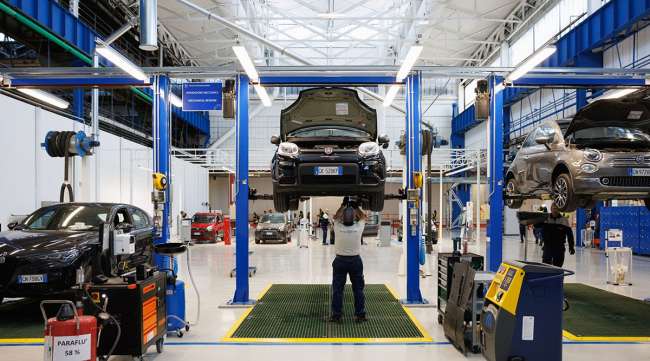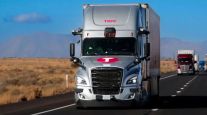Bloomberg News
Stellantis Petitions to Void California Emissions Agreement

[Stay on top of transportation news: Get TTNews in your inbox.]
Stellantis NV, owner of the Jeep and Ram brands, is petitioning against strict emissions standards adopted by California and 13 other states that it says give competitors unfair advantages.
The company alleges that California “improperly adopted” a 2019 deal negotiated by state regulators and four carmakers that allowed the manufacturers to voluntarily increase the average fuel economy of their fleets to about 50 miles per gallon by the end of the 2026 model year. Stellantis said it tried to join the deal, but was rebuffed by the California Air Resources Board.
CARB did not immediately respond to a request for comment.
The deal is widely seen as a model for a subsequent Biden administration rule adopted in 2022. That rule now requires carmakers to increase their average fuel economy to about 49 mpg by 2026.
Despite the national rules that will require roughly the same fuel economy, Stellantis said in its filing that the original agreement between CARB and Ford Motor Co., Volkswagen AG, Honda Motor Co. and BMW AG relieved those firms of their obligation to comply with CARB’s greenhouse gas regulatory standards.
Stellantis says manufacturers in the 2019 deal can meet the standards based on their nationwide sales, while excluded automakers are measured by sales in the 14 states that follow the California rules. A Stellantis spokesperson said that this resulted in the carmaker having too many electric vehicles sitting unsold in California.
Want more news? Listen to today's daily briefing above or go here for more info
The company said in a statement the California Framework Agreement “was developed secretly with some competitors, in direct violation of the California Administrative Procedure Act.”
The states following the California standards represent more than a third of the U.S. vehicle market.
In June, Stellantis said it would restrict sales of gasoline-powered cars in California and other states that had adopted its emission rules. The company said at the time that car buyers in those 14 states who specifically order gasoline-fueled vehicles from Stellantis could still buy them, but the automaker said it would be limiting its allocation of cars, SUVs and trucks with internal combustion engines to its dealer network in those places.




